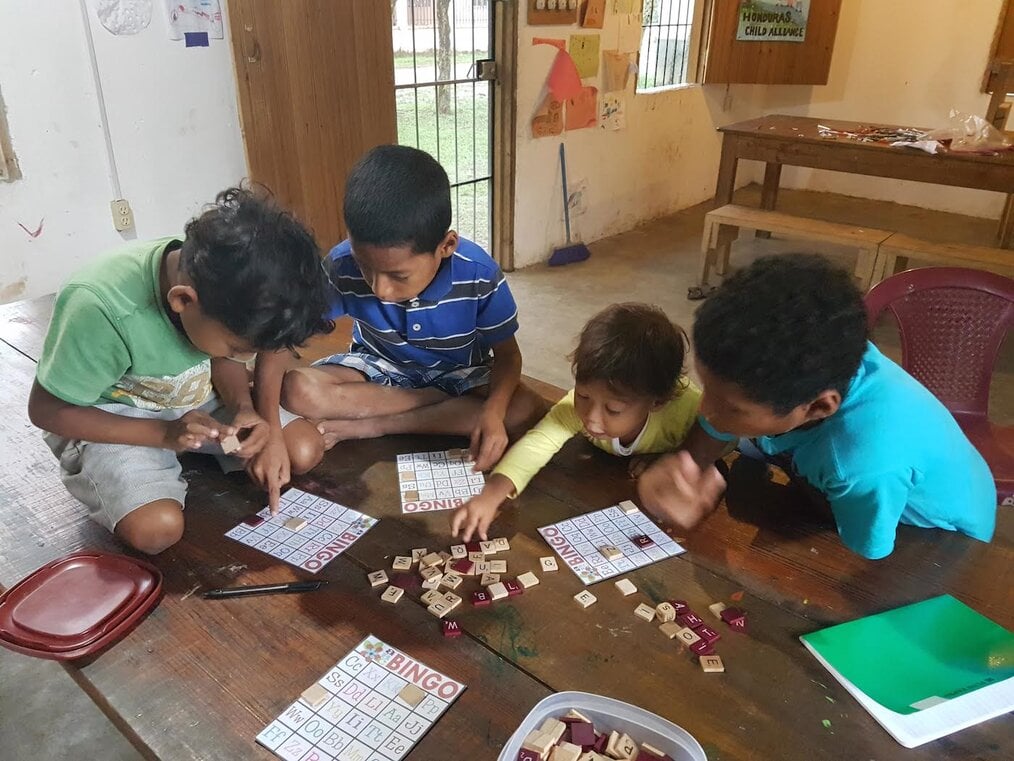Best ESL Games for Teaching Online

Computers are a wonderful gift to teaching, and no matter the age of your students, online games are a great way to help them practice English – without being dull. Teaching English online as a foreign language can be challenging when you’re not in a classroom with your students, but playing online ESL games can help.
These ESL games can be used during class to help you encourage your students to work together and to practice their skills. Online games for ESL students can cover a variety of topics, not just language arts and vocabulary; encourage your students to use their new skills in the world of science, math, and social studies as well!
Every teacher should have a few favorite online ESL games in their pocket, and here’s a list to get you started. Games for all ages and all skill levels are right at your fingertips. Keep this list handy for your next ESL class.
Teaching English in a classroom? Check out these 10 Best ESL Games for English Teachers Abroad
1. Story Telling

Learning new words and practicing sentence structure can be boring after a while, but creating a story is always fun. Encourage students to tell their own stories but add a twist that they must work together in this story telling game.
- Why use it? To practice storytelling, speaking, and vocabulary
- Who it's best for: Appropriate for all levels and ages
How to play:
- Start by giving the students a prompt. This can be a photo or a written prompt, depending on the age and ability level.
- Have students create a story from the prompt, with each student writing one sentence at a time.
- Have them continue to add to the story one sentence at a time as time allows.
- You can also put them in smaller groups if you have the ability and numbers to do so online.
2. Scavenger Hunt

Students, especially those younger in age, have a short attention span and need to get up and move. Even older students who are used to sitting will tire of looking at a screen and desire interaction. This scavenger hunt game gets them up and moving, while learning.
- Why use it? Vocabulary practice
- Who it's best for: Best for young learners
How to play:
- Give students a letter, category, or color of something to find in their surroundings. (For example, something that starts with the letter “P” or “something that is sticky.”)
- Set a timer and have them go find and bring back that thing.
- Students then take turns presenting their items to the class.
3. Charades

Students, particularly those in middle grades, love to get up and act out things – which is what makes charades a perfect game for teaching ESL online. There are many ways to tailor this game to your particular subject matter, and it can also be used as an icebreaker.
- Why use it? Vocabulary practice and speaking practice
- Who it's best for: Appropriate for all levels and ages
How to play:
- Have one student act out a word or phrase – you can assign them one, assign a category, or let them choose.
- The other students then guess the word or phrase the student is acting out.
- The one who guesses correctly first, then gets to act it out.
- It’s recommended to set a time limit for both the acting part and the game overall.
4. I Spy

Another great game is to play “I Spy” with your students. This game allows them to start looking around their surroundings and applying their knowledge to everyday life. There are a few ways to play this game, depending on your students and their ability levels.
- Why use it? Practice speaking and vocabulary
- Who it's best for: Best for younger learners
How to play:
- As the teacher, start with the phrase “I spy with my little eye, something that is ….” Here is where you can be creative. You can choose a color that someone is wearing, an item that you can see on their screen or, if you want to challenge them, something they have to find.
- Students then try to guess, or find, the object.
- Examples: "I spy with my little eye, something that is purple," "I spy with my little eye, something that starts with the letter 'D,'" or "I spy with my little eye, something that can be used to write."
5. Last Letter, First Letter

For students who are ready to practice spelling, but don’t like spelling tests, this game of Last Letter, First Letter is a great option. They’ll need to pay attention to silent letters and suffixes which can add to the challenge.
- Why use it? Practice spelling and vocabulary.
- Who it's best for: Students with a good spelling base
How to play:
- Start with a word and then pass to a student, who has to say a new word, that starts with the last letter of the word you selected.
- For example: The first word is Pillow and then the next word could be wish. Followed by another word that starts with H.
- Continue around the class until someone makes a mistake.
- To add a challenge, make it so that no word can be repeated.
6. Memory

Students may be able to memorize spelling words or math facts, but transferring that recognition and awareness to everyday life may be harder for them. This game allows them to practice just that.
- Why use it? Practice memory, vocabulary, and writing
- Who it's best for: Appropriate for all levels and ages, adults and older learners will love this game
How to play:
- Present a picture containing various objects on the screen for students to view.
- Set a timer for two to three minutes and encourage them to remember what is in front of them – they cannot write anything down.
- Then, remove the photo and ask them to write down as many of the objects they can remember.
- Go through the list together, talking about the objects and using different adjectives to describe them.
Keep Your Students Engaged and Have Fun!
Games are a favorite way to learn for a lot of people, and these games will keep your students wanting more. As an ESL teacher, there are many other games you can play, both within the classroom and online--these are just a few. Consider some friendly competition as you introduce these games and encourage your students to keep playing as they advance their skills.
